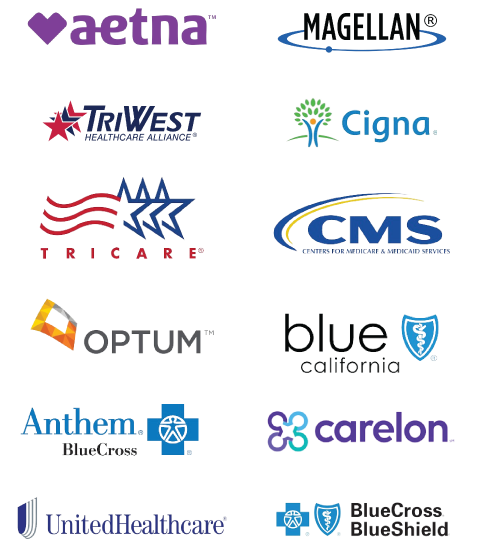
Addiction. Addict. Rehab. Detox. Now, as addiction specialists, we know that the negative connotations tied to these words are sensitive and mostly out-dated. However, our societal stigma attached to them can really bring the hammer down on our self-esteem of someone in early recovery. How would you feel if everyone around you was telling you that recovery is the answer, but when you sought treatment, all you faced were more judgements and accusations?
“She had to go to rehab”
“Did you know he’s an addict?”
“I can’t believe she needed to go through detox”
People can hardly admit that they’re addicted to their cell phones let alone opiates or alcohol, to name a couple. Now imagine coming clean to the world about a drug or alcohol dependence: the mere thought of having your truth be shared with the world is enough to inhibit a person’s will to do so. Most patients, when initially checking into rehab, feel sad and defeated. They feel as though their entire existence is defined by this disease we call addiction. And they can’t really be blamed for experiencing these emotions: society has the tendency to permanently brand anyone who has or has had an issue with substance abuse as unfixable, or tainted. Admitting to yourself that you have a substance abuse problem can be a shameful and embarrassing experience in itself. We understand that here at Compassion Recovery Center.
But recovery is possible. Sobriety is possible. Removing the toxic elements from your life and re-exposing your true self to the world around you is possible. Seeking professional treatment is the best way to break free of addiction’s chains. Through recovery, you will re-establish your sense of self, discover your full potential, and find your true purpose. Below are a few reasons on how to improve your self-esteem during treatment and addiction recovery:
1. Be Open With Those Around You
Addictions can make you feel very alone. You’re a prisoner of your own mind, constantly burdened with your own thoughts, impulses, and guilt-ridden behaviors. It’s easy to feel like no one will understand what you’re going through, because it is likely that the majority of the people who were around you before treatment really didn’t grasp the severity of your internal struggles. But rehabilitation provides an accepting and safe environment for those who seek inpatient treatment. You’re surrounded by individuals who share similar insecurities and experiences while in drug treatment in Laguna Hills.
Being open with your story gives others the chance to hear what you’re going through, and even provide insight from a similar first-hand experience. This will allow you to hear the experiences of others as well, and realize that you’re not so different after all. One of the most important things to remember during treatment is that you’re not alone. If you don’t feel comfortable sharing in a group setting, start off by talking to a counselor one-on-one. As those interactions become easier and easier, try giving group therapy a shot: growth starts with facing your insecurities head-on.
2. Find Outlets for your Emotions
Bottling up your feelings is never the answer. Having a whirlwind of emotions coursing through your body can be stressful and hard to manage. If your thoughts are jumbled and unsorted, it’s nearly impossible to get a clear grasp on the person you were versus the person you’re becoming throughout treatment and during recovery.
Journaling is a great way to visualize your thoughts by getting them down on paper. And this doesn’t necessarily mean you have to go down the “Dear Diary” route. Start by making a few lists: where you were, where you are, and where you want to be. Documenting how far you’ve come and manifesting your success with words has proven to be a huge tool in boosting confidence and self-esteem while in Outpatient Treatment Laguna Beach.
Drawing, painting, and sketching are other very useful outlets when it comes to emotions. Not only are you transforming your feelings into pictures, you are creating a beautiful piece of art that you can be proud to call a creation of your own. Being able to look at a painting and think “Wow, I did that” can be a powerful tool for recovering addicts in helping them understand how capable they are. The sense of worth that comes with being proud of something you’ve created is an uplifting experience for recovering addicts during their journey through drug rehab in California.
3. Forgive and Encourage
One of the biggest forces behind improving your self-esteem as an addict is to forgive yourself. No one is perfect, and every person you meet has several flaws of their own. By understanding this concept, you can forgive yourself for your own shortcomings. This opens the doors to practicing positivity and encouraging yourself to do better.
It’s important to remember that the way you feel is tied to your addiction. If you bring the same emotions and the same attitude that you had during your time of struggle into recovery, the treatment won’t be nearly as effective. Letting go of the person you were and forgiving yourself for the things you did is the first step toward fully realizing that your addiction does not define you. You deserve to be happy just as much as anyone else. You can, and will, progress.
4. Accept The Fact That Change Doesn’t Happen Overnight
It can be hard for any individual to shift their mindset, whether they’re an addict or not. Changing your thought-process and the way you perceive your own self is a lengthy process. Accepting the fact that not every day is going to be great will help in understanding that feeling low doesn’t mean you’re backtracking. It doesn’t mean that the good days you’ve had meant nothing. There is no timeline for improving self-esteem: as long as you’re making a consistent, conscious effort to think positive, you’re doing exactly as you should.
Our Facility
Compassion Recovery Center provides a safe, welcoming environment for all of our patients, who range far and wide as far as addiction, treatment, and recovery processes go. Our services range from inclusive group therapy to special individualized treatments, and all of this is determined when enrolling. Our mission is to make sure that each of our patients is on the right track for their own recovery. Call us today to speak with one of our specialists, let’s start your journey together!






